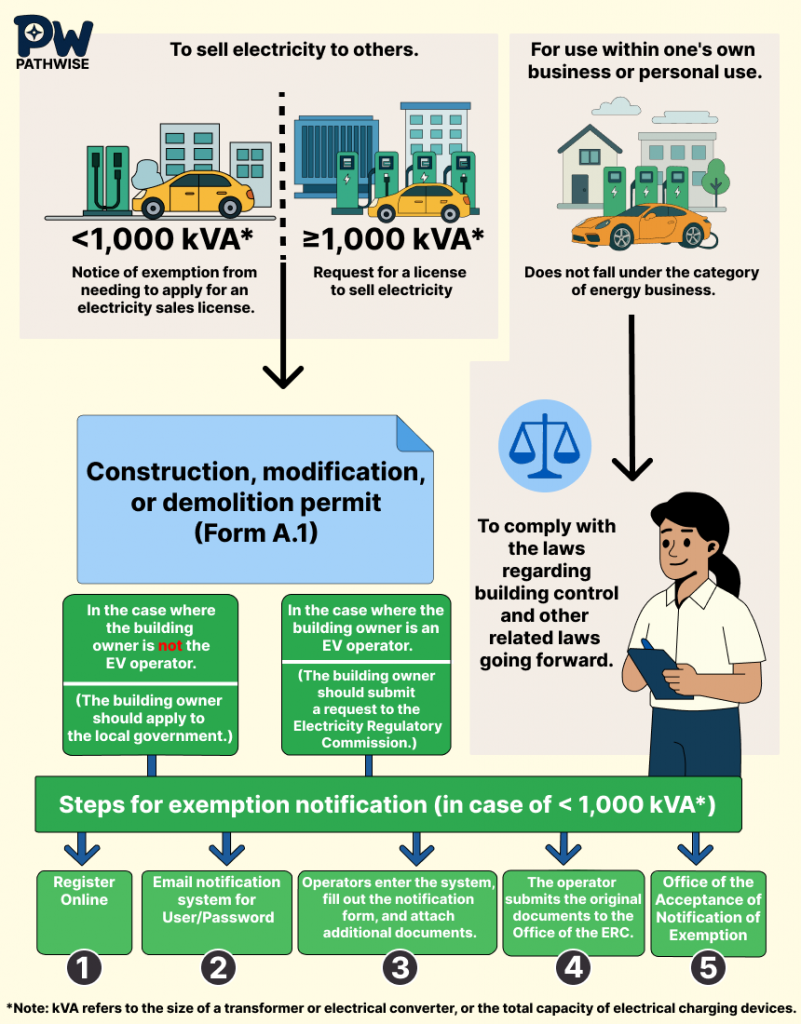Establishing an electric vehicle (EV) charging station in Thailand involves more than simply installing equipment and opening for service. Business operators are required to obtain the proper licenses in accordance with Thai law to ensure safety and the efficient use of energy resources.
In this article, we summarize the key procedures and requirements for obtaining a license to operate an EV charging station, based on the regulations issued by the Energy Regulatory Commission (ERC) of Thailand.
Is an Authorization Required for EV Charging Stations?
Yes, it is mandatory. EV charging stations fall under the category of energy-related businesses, as defined by the Energy Industry Act B.E. 2550 (2007).The authorization process is divided into two cases based on the total capacity of the electrical distribution system installed:
Case 1: Total Electrical Capacity of 1,000 kVA or More
- Required License: Electricity Distribution License issued by the ERC
- Example: Large-scale charging stations with a transformer or a large grid-connected inverter
- Application Process: Must comply with the Energy Industry Licensing Regulations B.E. 2551 (2008)
Case 2: Total Electrical Capacity Less Than 1,000 kVA
- These stations are classified as exempted businesses and do not require an electricity distribution license.
- However, operators must submit a notification to the ERC in accordance with the Exemption Notification Decree B.E. 2552 (2009)
- Example: Small to medium-sized stations, such as 4–6 charging heads installed in shopping malls or office buildings
Required Documents and Preparation Step
- Site location details
- Electrical system layout and charging station diagrams
- Safety assessment report
- Copy of construction or renovation permit (if applicable)
- List of electrical equipment and technical specifications

Additional Notes
- Operating without a license or failing to notify the ERC may be considered a violation of the law and subject to penalties under the Energy Industry Act
- Operators should plan from the early stages of the project to avoid delays in service launch
- For stations with long-term plans to sell electricity commercially, it’s advisable to prepare the infrastructure for future capacity expansion in advance
Conclusion
Authorization for Establishing and Operating an EV Charging Station is not merely a paperwork process — it represents a commitment to responsible business practices and compliance with national energy regulations. Proper preparation from the beginning is a key step toward successfully operating an EV charging station business.
Reference:Based on materials from Anan Industry Co., Ltd. – Licensing Process for Electric Vehicle Charging Stations
